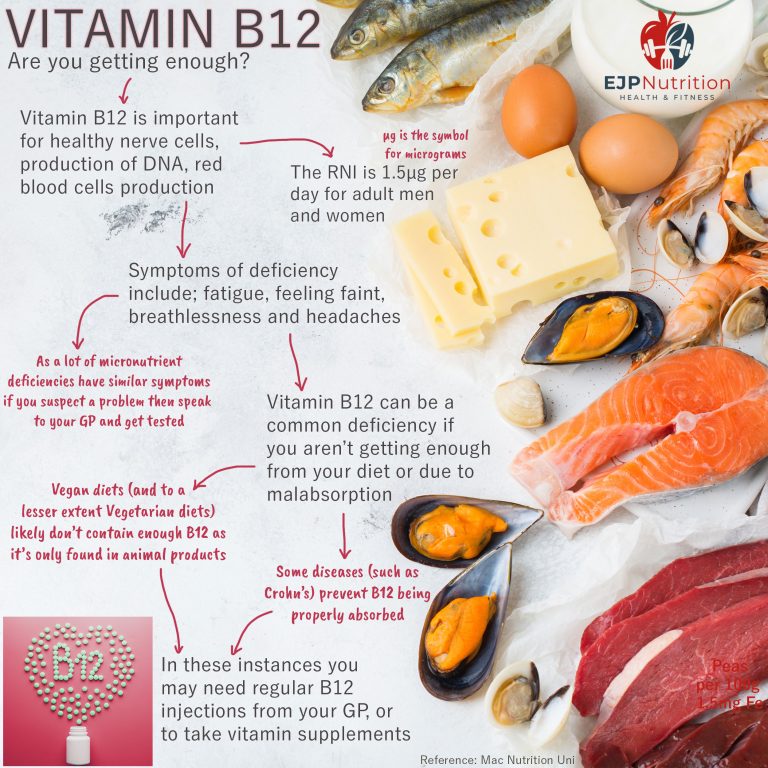More people are vegan than ever before. I’m not going to talk about reasons why (or why not) to choose that diet, that’s a personal choice. But if you do eat that way, vitamin B12 is definitely something that should be considered.
Why do we need B12? For healthy nerve cells, the production of DNA, and red blood cells production.
Where do I get it?
Vitamin B12 is only found in animal products, so not in vegan diets. It may also be lacking in some vegetarian diets, depending on whether dairy is included or not. Some products are fortified (I actually noticed drinking a can of Red Bull last week it had more than my daily RNI!), but it’s an important micronutrient so you want to ensure you are getting it from somewhere.
Another consideration is some clinical conditions lead to malabsorption. This includes Crohn’s disease where the intestinal lining is damaged. In these cases the B12 in the animal products from you diet aren’t absorbed and you can become deficient.
Deficiencies
Signs of deficiency include; fatigue, feeling of faint, breathlessness and headaches. As noted on previous posts there is some crossover in micronutrient deficiency symptoms (fatigue also being common with low vitamin D or iron for example). If you do suspect you have a problem, speak to you GP who can check and diagnose you. They can also advise on a corrective dose if needed, and how much to supplement moving forward.
A deficiency can sometimes be masked by high folate intake. If you aren’t eating animal products it may be worth checking, even without symptoms. Low B12 is a risk factor for neurological damage, and a potential risk for neural tube defects in pregnancy. The latter is due to the folate effectively covering some of the functions a good level of B12 normally would, which then leaves it short during pregnancy.
To summarise Vitamin B12 is essential for optimal health. If your diet regularly contains meat, fish, dairy and/or fortified products, you probably get enough. If however it doesn’t, then a supplement is likely necessary, so speak to you GP who can advise further.
Bonus note
While B12 is a water-soluble vitamin, it can be stored in the body. All the other water-soluble vitamins can’t be stored, and any excess is excreted in your urine. This means you have to get them every day. Vitamin B12 can be stored for years. Although chronic malabsorption or insufficient dietary adequacy will still lead to deficiencies once the stores are depleted.
References: Mac Nutrition Uni, O’Leary & Samman 2010
(Reposted from Instagram)


